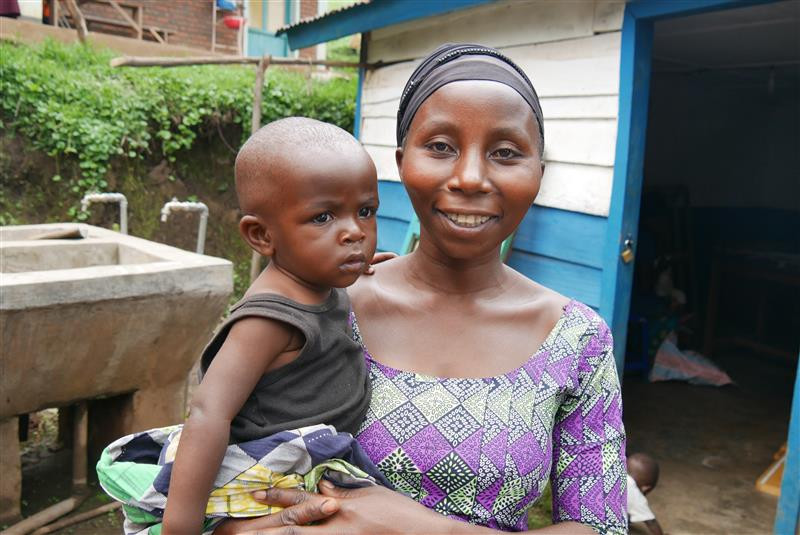From Malnutrition to Hope: Why we combat malnutrition in remote communities in DRC
Published: Nov 21, 2025 Reading time: 4 minutes Share: Share an articleMore than 90% of households in South and North Kivu are affected by food insecurity. To help them endure, life-saving food, seeds, and tools were provided thanks to US-government funding. For now, families have at least something to eat.

In 2021, conflict returned to DRC, it intensified with clashes in North and South Kivu. This conflict is fueled by ethnic tensions and the struggle to control natural resources; it has led to humanitarian crises and forced large parts of the population to flee their homes, depriving them of their livelihoods. These people, mostly women and children, often find themselves in overcrowded camps with dire living conditions.
Repeated clashes in South Kivu have led to a considerable deterioration in the nutritional crisis. Ravaged by war, crop destruction, and disruption of trade routes caused by inaccessibility in certain areas, the people of South Kivu now face dramatic increases in food prices.
Humanitarian aid is not enough
In South Kivu, it is nearly impossible to find anyone with enough food. This leads to tragic outcomes: parents have nothing to feed their children, and pregnant and breastfeeding women are beset by malnutrition that affects mothers, the unborn, and infants.
Humanitarian aid is inadequate to meet growing needs; millions of people are missing out on vital assistance. We are helping to address this thanks to support from the US government. In the Lemera health zone, we are focused on the treatment of severe acute malnutrition. Elsewhere, in the Minova health zone, we provide direct food distributions and support agricultural activities in displaced persons' households and host communities. Currently, the Minova health zone is overflowing with thousands of displaced people from areas occupied following bloody fighting betweenthe M23 rebel groups and the government.
During the fighting, people like Martha are forced to flee their lands, losing the ability to produce food and earn a living. This creates increased food insecurity and malnutrition.
Food, seeds and agricultural tools
Our colleagues in the DRC are addressing challenges head-on and seeking ways to deliver assistance in hard-to-reach and often conflict-affected areas.
We distribute food supplies consisting of corn flour, salt, oil, beans, and rice to enable refugees and host families to feed themselves properly during this difficult period.
We address emergencies in a way appropriate to the given context and the added-value we can bring—in the case of DRC, our focuses are nutrition-sensitive food security and livelihoods recovery.
In addition to distributing food, we also supported families with farming tools and seeds to supplement their food rations and combat malnutrition and other diseases linked to poor nutrition.
According to UNICEF, clashes since January have intensified and spread throughout North Kivu and South Kivu, forcing nearly 850,000 people to flee their villages. Many children have been separated from their parents and are now scattered throughout the country and beyond.
Despite growing insecurity, we still work to alleviate the suffering of people who are victims of war and atrocity.



